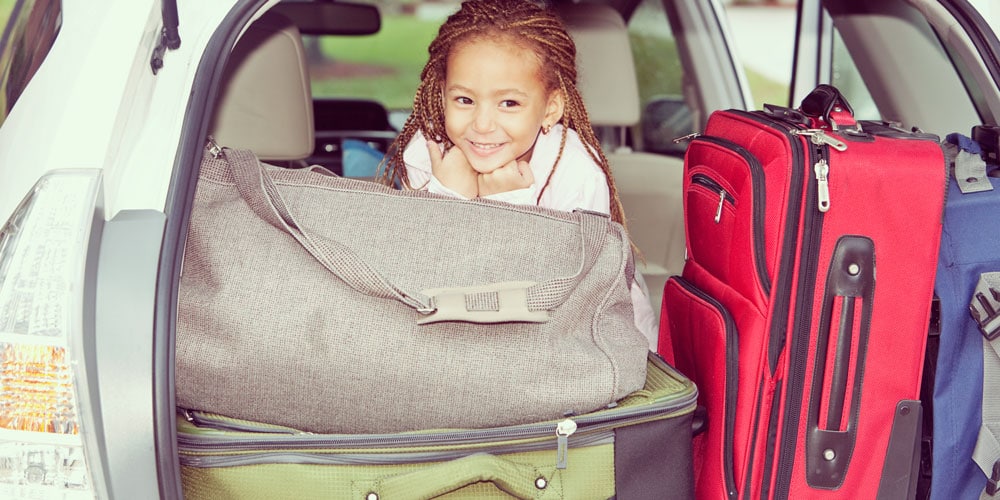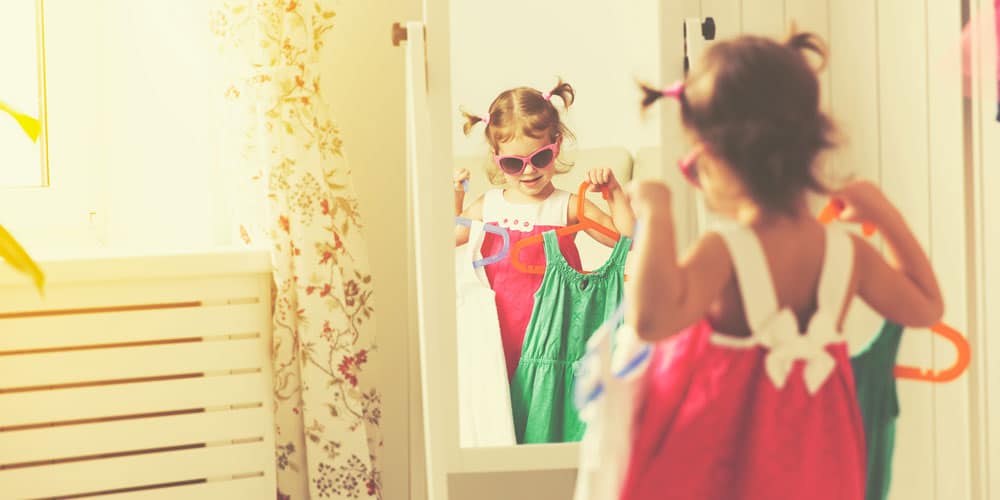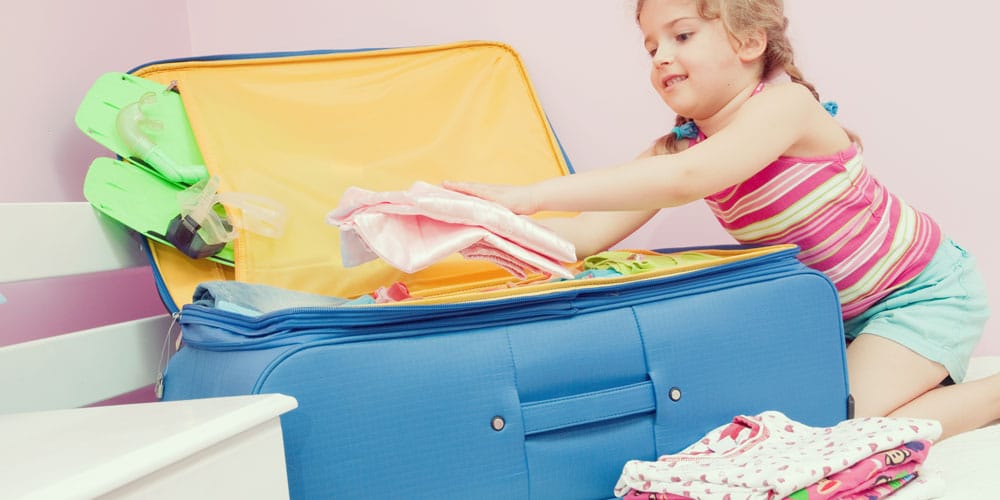Rachel Vecht, founder of Educating Matters, gives us her top tips on how to help children pack on their own and learn important life skills at the same time

This applies to any chore your child isn’t used to and don’t expect it all to be done in one go. For example, work out what you need to take, choose items, wash anything that’s dirty, get the case out and place it all in the luggage.
Depending on your child’s age, you may sit down and do this with them or leave them to do it independently. Establish where you are going, how long for and what type of clothes are needed – count how many days or nights there are and what activities you will be doing.
This will give you the chance to check over everything before it gets packed and make it easy for the children to understand what they need and what they are missing. Top tip: Free standing coat rails are useful for doing this.
I did this for the first time when I climbed Kilimanjaro and the whole family have done it ever since. Use thick plastic zip lock bags or net bags (Muji sell them in all sizes) and separate clothing into categories. It makes unpacking at the other end much easier. The kids can take the bags out without removing the content and it’s particularly valuable if you are moving around a lot on holiday or you have a number of children sharing luggage, as clothes get muddled up.

We travelled abroad for a family wedding which consisted of four separate parties. With three daughters that was a total of 12 outfits. I took photos of each outfit before we left including hair accessories and shoes, so each child knew exactly what they were wearing when each event was happening.
Everyone has their own way of packing and provided nothing important gets left behind it doesn’t really matter how you do it. Encourage your children to try different approaches. I always pack clothes on hangers which again makes it much easier to unpack at the other end. Also pack anything that creases easily with a plastic dry cleaning bag over as it helps reduce creasing.
Injecting some fun and humour into any chore makes it more enjoyable. For example playing music and dancing whilst you pack.
I hate feeling under pressure and you never know what unexpected things can happen in the days running up to going away. It’s a good lesson to try and teach children to plan in advance and avoid procrastination. I try to get the kids to lay out what they need or place it on a shelf in their wardrobe up to a week or two before we actually leave. It doesn’t necessarily need to be in the cases but the time consuming bit is working out what to take. ‘Don’t put off for tomorrow what can be done today.’
If your child has never packed before, start by asking then to pack their toys or hand luggage.

If you want them to pack again, it needs to be a positive experience. If they make lots of mistakes or silly suggestions don’t be too critical or instruct too much. Praise, encourage and acknowledge every tiny step in the right direction. When children are busy they can be more open to talking so use it as an opportunity to connect and chat about other things.
Place two plastic bags in the luggage so once the kids are on holiday they can place any dirty washing in the bags making things tidier when they are there and much easier to sort when you return home.
Helping your child develop good habits and encouraging more independence truly sets them up for life.
Educating Matters provides guidance and support to tens of thousands of parents in the workplace & schools through seminars, webinars and clinics. Rachel also delivers a 10 week ‘Positive Parenting and Family Skills’ course to groups of parents and one to one consultations to parents across the UK.
‘Parents are a child’s first and most important teacher’
